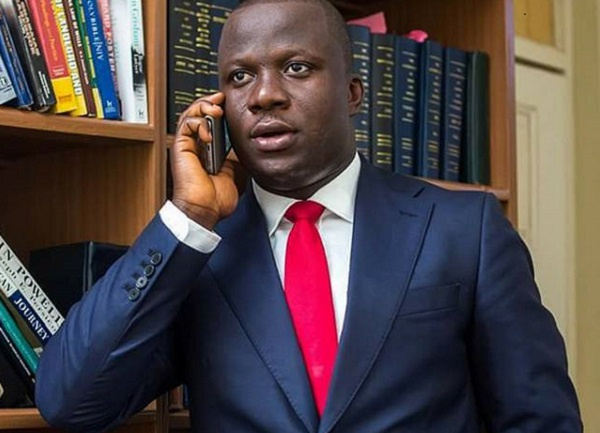Ghana is positioning itself to become the mining hub of Africa, where all mining and related activities, as well as various linkages, will be centred and take place.
In furtherance of this, the country is already implementing a policy and legislative framework towards a mining industry which substantially retains the full value chain of the industry — from exploration, to mining, refinery, smelting and downstream production to support and financial services.
This came to light in an interview with the Minister of Lands and Natural Resources, Samuel Abdulai Jinapor, at the just-ended global conference in Cape Town, South Africa, dubbed: “Mining Indaba”.
Expatiating further on the ambitious African agenda, the minister said the 2014 mining policy was undergoing a major review for a clear legislative framework that would assure the state, its citizens and the investor community of a win-win situation.
To firm up the move, Mr Jinapor said, Ghana had also embarked on a series of major bilateral discussions with mining giants across the globe, including Rand Refinery, AngloGold Ashanti, Australia, American and Nigerian partners, towards achieving the set objective.
President’s vision
“We want Ghana to become a launch pad, so we can provide expertise and services. Essentially that is the President’s vision; that is, what we are working to achieve — what he is in the process of transforming Ghana into,” Mr Jinapor disclosed.
According to him, within the framework of linkages, the Lands Ministry was placing a lot of emphasis on enhancing local content in mining operations.
In that regard, he said, maximizing human resource in the mines and encouraging Ghanaian ownership were critical.
All that, he noted, were happening to some extent and mentioned Cardinal Resources, which is operating in the northern part of the country, Asante Gold, Adamus, Rocksure and Ghana Bauxite at Awaso as some of the mining companies.
“The University of Mines and Technology (UMaT), Tarkwa, is also training mining experts and localizing the training, which has already seen many of our neighbours coming to Ghana to study,” he stated.
Collaborative approach
Mr Jinapor said his ministry was adopting a collaborative approach with the Ghana Chamber of Mines to develop the mining sector, as well as optimize operations to maximize the contribution of mining to national development.
“As you know, Ghana is the number one producer of gold in Africa and the sixth in the world, and today, several countries, including Burkina Faso, Niger and Mali, which historically were not gold-producing countries have suddenly discovered gold and are all becoming gold-producing countries, “ he indicated.
“So what does the President mean when he says we should make Ghana the mining hub of Africa? What it means is that we should be able to develop an indigenous mine support industry which can support, let’s say, the mining industry of Burkina Faso, Mali and Niger.
“If we talk about exploration, we should develop an exploratory sector in Ghana which can venture into the space of Burkina, Mali and Niger. When we talk about financing for mining activities, we should be able to engage our financial sector in a way that mobilization for mining will take place in Ghana,” he added.
Regulatory framework
“As you know, Ghana prides itself as one of the countries with a very advanced regulatory, legal and policy framework for mining and several countries have visited our country since I became minister to learn from us,” Mr Jinapor further stated.
He said a number of countries, including The Sudan, Guinea and Niger, had sought audience with Ghana, asking for technical assistance and to explore the opportunity of learning how the Ghana Integrated Aluminium Development Corporation was set up and how Ghana was developing its bauxite industry.
Democratic culture
The whole issue, Mr Jinapor argued, also bordered on the country’s democratic culture, where the rule of law was the norm and not the exception, and where there was respect for contract sanctity.
“This is where the ministry works in partnership with the Ghana Chamber of Mines and various stakeholders in the industry to ensure that the country becomes a conducive environment and attractive environment for investors,” he said.
He indicated that his sole aim and preoccupation was to engage with all the key actors in the industry to make them confident that the country was the place to spend their money.
“Ghana is the place to invest,” Mr Jinapor concluded.







